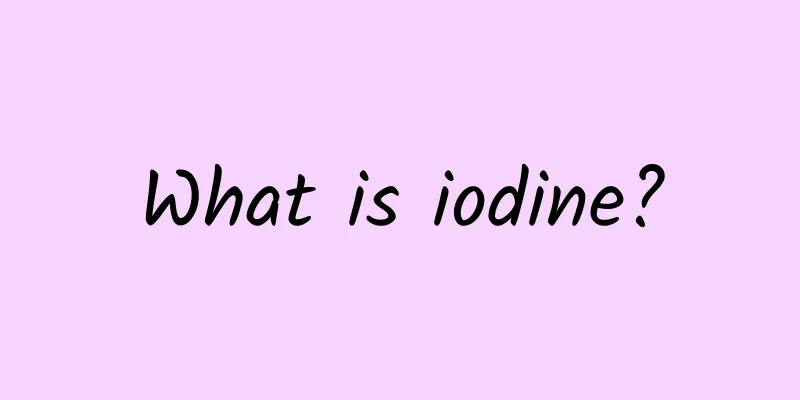What is iodine?

|
I believe that everyone must have encountered or seen this or a similar situation, where doctors in the hospital use some medicines to clean the wounds of patients. I wonder if you have taken a closer look at what these medicines used to clean the wounds are? Presumably many people have not paid attention, so now let me tell you. In fact, doctors usually use mercurochrome and iodine to clean patients' wounds. Speaking of iodine, you may not have much impression of it. Indeed, in our daily life, the most common way to clean wounds is with mercurochrome, and the use of iodine is relatively rare. The so-called iodine tincture is actually an alcohol solution mixed with iodine and potassium iodide. So, let’s introduce iodine tincture in detail below. Iodine tincture, also known as iodine wine, can penetrate the skin and kill bacteria (2%-3% iodine tincture is used for skin disinfection. 1% iodine tincture is used for oral mucosa disinfection). However, it cannot be used together with mercurochrome, as this will produce toxic mercuric iodide. Iodine tincture for external use. Dip a cotton swab in a small amount of iodine tincture and apply it to the affected area from the center outward. After disinfection, use 70% alcohol to deiodine. Iodine is generally used for skin and soft tissue infections, dermatology and wound disinfection. The reactions that may be caused by the use of iodine include allergic reactions and dermatitis. The following are some precautions when using iodine: 1. It is not suitable for disinfection of damaged skin, eyes and oral mucosa. 2. This product is for external use only and should not be taken orally. If poisoned by accident, immediately feed starch paste or rice soup by gavage and go to hospital for treatment. 3. If there is burning sensation, itching, redness or swelling at the medication site, stop taking the medication and wash off the local medication. Consult a physician if necessary. 4. If the product is ineffective after 3 consecutive days of use, consult a physician. 5. People who are allergic to this product are forbidden to use it, and those with allergic constitution should use it with caution. 6. It is forbidden to use this product when its properties change. 7. Please keep this product out of reach of children. 8. Children must use this product under adult supervision. 9. If you are using other medicines, please consult your physician or pharmacist before using this product. Strictly speaking in medicine, iodine is actually a preservative that has a disinfecting effect and can generally kill bacteria and viruses. Now everyone should have a deeper understanding of iodine. While understanding it, don't forget to prepare some iodine for yourself or your family, because it is inevitable that you will accidentally get wounds in life, and the bactericidal and disinfecting effect of iodine is much better than mercurochrome. |
>>: Nutritional value of snake meat
Recommend
Here will be another major scientific facility! How will the world's first "zero magnetic" space expand the boundaries of humankind?
Large scientific facilities are called "the ...
Which Chinese medicines can soothe the nerves and nourish the brain?
Nowadays people are under high pressure. Not only...
The efficacy and function of Chinese medicine pepper
Sichuan peppercorns are a condiment that many peo...
my country's first million-ton offshore carbon dioxide storage project put into operation
Reporters learned from China National Offshore Oi...
What are the medicinal values of San Dingzi?
Most people may be unfamiliar with Chinese medici...
Velcro antibiotics are here! Hug bacteria before killing them?
Produced by: Science Popularization China Author:...
Captain Da Shanzhaowan's Notes | Deep Sea Part 2
About the Mistakes of Hydrothermal Fluids During ...
Soak cold rice in hot water. I don’t recommend you eat this bowl of food from the movie “Fanhua” every day!
Have you been watching the hit drama "Fang H...
Effects and functions of Wuhua fruit leaves
In life, many people grow some figs at home as po...
Shanxi, the "sleeping province", has also become popular! Is the "nap gene" not groundless?
It is said that the two things that a Shanxi pers...
False "freshness": How do fresh food lights "mislead" your eyes?
Shopping is an essential part of our daily lives....
Can children eat Panax notoginseng?
Panax notoginseng, also known as Sanqi, is a Chin...
Hiss! Burned by the hot pack again? We did an experiment to reveal the truth about the burns caused by the hot pack!
Every winter, we always see a lot of news about p...
What diseases can earthworms cure?
Earthworm, also known as earthworm, was often see...









